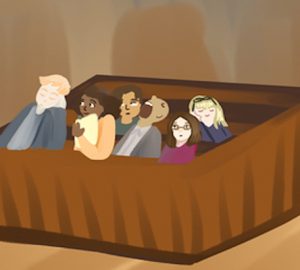Decriminalization and Rehabilitation: A Radical Approach to Ending The Drug War
The latest dispatch I received from behind the wall came in the form of a letter submitted to Thrasher’s Mail Drop column. The letter, titled “Heartbrake” (sic), is written by a rag-tag drug addict skate dad behind bars. In the letter, he details a few things: skateboarding, art and trying to find a way out. He describes his daughter as his greatest masterpiece and writes that he hasn’t seen her since she was born.
This stands as probably the millionth story of a family torn apart by the war on drugs. You can find these stories anywhere and hear them from all kinds, from the highest multinational drug lords and kingpins, to the dealers on street corners and nonviolent offenders serving chunks of their life away for being caught with just a little pot on their person. Billions of dollars have gone to this war, and millions of lives have been taken or locked down for a very long time. It’s time to admit that the drug war is a failure.
Now that we’ve admitted the war on drugs is a failure, we have to try and find a better solution to handle the drug problem. Well, we may not have to brainstorm too hard, a solution has kind of already been found.
In the year 2000, Portugal took action to combat their own drug problem. What they did shocked the world over. They decriminalized drugs. Not just stuff like marijuana and psychedelics, but hard drugs as well. As it stands, anyone in Portugal found with less than a 10-day supply of a drug is not arrested. They’re given a citation to appear in court in front of what are known as “dissuasion panels” made up of medical and psychological experts with the intention of helping the person give up the substance. Repeat offenders, instead of being thrown into the slammer, might get treatment like therapy or rehabilitation.
The approach works. The rate of deaths from overdose since decriminalization in Portugal have fallen from 80 in 2000 (the year of decriminalization) to only 16 in 2012. HIV infection that spreads by needle usage has also dropped. The country has not been run into the ground by drug addicts running wild. On the contrary, drug addicts have been lifted up by a country that has decided to focus on harm reduction rather than filling a cell.
Portugal’s approach to the drug war is not particularly revolutionary. Drugs are still illegal and they follow UN regulations. Major traffickers and dealers caught with anything over a ten day supply are still jailed. They have not at all provided a final solution to the worldwide drug problem, but it’s a start, depending on how you view drugs and incarceration.
What we can learn from Portugal’s “radical” approach is this. In a society that has less of a scared stigma around drugs and their users, those who are addicted to illicit substances are more likely to seek help. Centers giving away clean needles reduce the spread of HIV and AIDS among users and by default the general population. Overdoses become less of a problem, so does violent drug related crime. Basically, if we treat drug users and addicts as humans with a problem that can be fixed instead of wild, dangerous animals that need to be caged, all of society benefits. Imagine that.



























